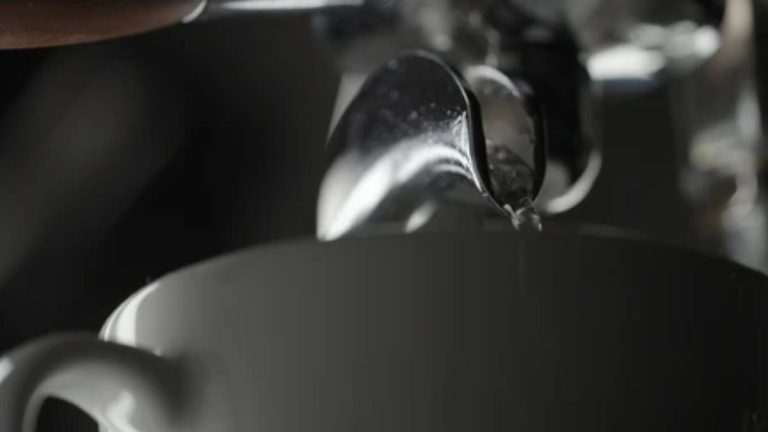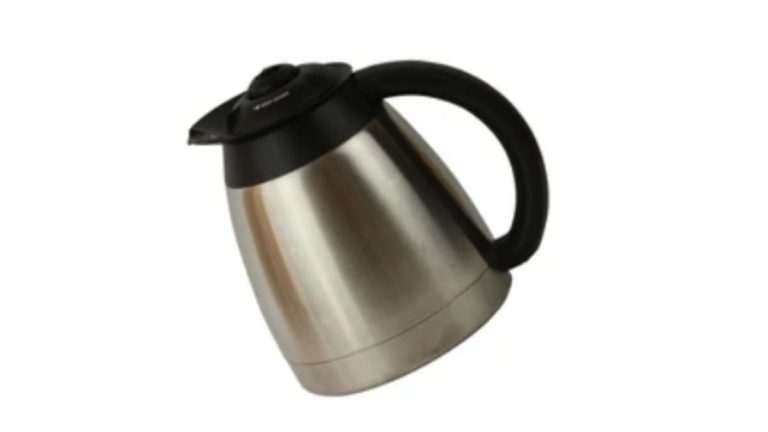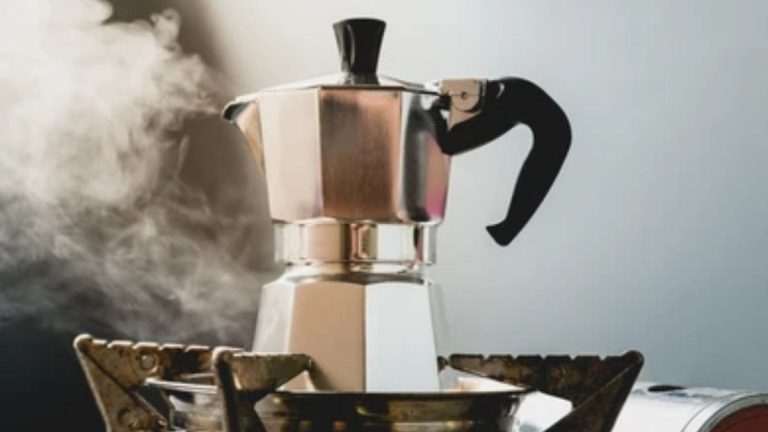Why is my coffee sour?
You’ve got your freshly roasted coffee beans and your fancy French press, but when it comes time to taste that freshly brewed goodness, something is off. And you ask, Why is my coffee sour?
Introduction
Table of Contents
Nowadays, it seems like drinking coffee is a big part of our lives. We meet our friends in the cafe, go to the local coffee shop after work, or buy a bag of coffee and drink it at home. Sometimes, when you go to a well-known coffee shop, you feel like you’re “at home”. But sometimes something could go wrong with your coffee – and it could be charming if it happens.
The longer they are roasted, the more substantial the coffee. Roasting can cause a chemical reaction that results in a more acidic taste. It’s easy to fix, though.
OK, so why is our coffee tasting ‘sour’? To be honest, sour is one of those words with many meanings. But when it comes to coffee, it usually means that the taste isn’t as we expect it to be. Coffee’s characteristics can vary wildly depending on factors such as the variety and origin of the bean and how it was roasted and brewed.
Why does coffee taste sour?

When coffee is brewed, it usually comes out tasting sweet and delicious. But sometimes, you taste something strange in your cup, and you’re not sure what it is. You might think that your coffee has gone bad or that there’s something wrong with it. In reality, this may be caused by several factors!
Sourness in coffee can happen for various reasons: a lousy roast, incorrect brewing techniques, or even something as simple as the water used during brewing. All of those factors can add up to a sour brew.
A coffee’s flavor is affected by so many factors — where it was grown, roasted, how the barista prepared it. But if your brew tastes sour, you can almost always fix the problem with one of four methods we will mention:
Sourness in coffee is commonly referred to as “acidity”.
Acidity is a relatively common flavor defect triggered by several different factors, the most frequent being a lack of cleanliness and/or an unstable water profile. Coffee is grown in mineral-heavy soil, or water (high TDS readings) are also more susceptible to developing sour flavors.
Bitter coffee is a common problem, and it’s easy to fix. All it takes are a little know-how and some simple chemistry.
Coffee starts to taste bitter when the acids in the coffee react with the compounds in the coffee that cause bitterness. As the compounds react, they form other sour compounds, so the cup of coffee tastes sour on your tongue.
The best method to avoid this is to consume your coffee right after it’s been brewed because as soon as coffee sits around, it begins to oxidize. Some people like to brew their own because they can control how long it sits before drinking—but with automatic drip machines, you don’t have much say in how long it sits around before being poured into a mug. The solution? Filters and paper cups!
Paper filters remove unwanted fatty oils from your coffee that can make it taste bitter or sour (just ask any barista). But more importantly, paper filters also remove a lot of the oils that oxidize quickly and spoil your fresh-brewed cup of joe. Because paper filters remove so many of these oils and bad-tasting compounds from your brew, they’re often called “stale” flavors and aromas.
Taste-Testing Sour Beans
The easiest way to verify if your beans have developed some sour characteristics is simply to taste them. If your beans are tasting excessively bitter, you’ll want to consider the possibility of sourness. This will typically present itself in the form of:
Green apple aroma
Bitter herbal flavor or sensation on the palate
Excessively sharp acidity or astringent
Have you ever had to brew a cup of coffee that just tasted kind of off? Maybe it was sour, or bitter, or just plain weird. The reason for these strange flavorings is usually some kind of contamination.
Taste is a complex phenomenon that is influenced by a variety of factors, but we can categorize it into a few main categories:
Acidity. This is the sharp taste in your mouth when you drink coffee. Acidity is often described as brightness, but it’s not always pleasant. Acidity levels fluctuate widely from crop to crop and even within the same crop due to changes in weather conditions during harvest season. Acidity levels are also affected by storage methods and roast levels.
Body. This is how heavy or light the coffee feels on your tongue. The body is mainly determined by the number of oils left in the bean after roasting. Coffees with more body feel heavier in your mouth, while lighter bodied coffees may have a hollow or watery sensation on your palate.
Flavor profile: Acidity and body work together to create a flavor profile unique to each coffee. Flavor profiles can range from syrupy dark chocolate to tart berry flavors to grassy or musty notes.
Sour coffee, it happens. It’s not pleasant, and it’s probably not your fault.
Type 1: The water is too hard. First and foremost, let’s get this out of the way: if your coffee tastes sour all the time, regardless of what you’re brewing with it, and you have access to good water (i.e., not tap water), then that most likely means that your water is hard.
Your coffee might still be potable, but it will taste off because these minerals are doing things to the flavor of the coffee that you don’t want. The best solution here is to use a water filtration system to remove those minerals from your water before brewing with it.
The upside to using a good water filter is making all of your beverages taste better (tea, cocktails, etc.). And if you’re using a charcoal or carbon filter, you’ll also be removing chlorine from your water (and possibly other contaminants). This can help ensure that each cup of coffee you prepare is as fresh and delicious as possible.
Type 2: The grind is wrong for the brew method.
What Causes Sour Coffee?

It’s crucial to know that there are no formal guidelines when it comes to the acidity levels of coffee beans. However, the average acidity level is between 0.8% – 1%. The lower the acidity level, the more efficiently your body can digest the bean and extract its nutrients. The higher the acidity level, the harder it is for your body to digest and remove all that wonderful flavor from the bean itself.
Coffee beans naturally develop their unique flavor profile based on growth.
4 Barista-Approved Ways To Fix Sour Coffee

Many new coffee drinkers will often complain that their coffee tastes sour. They’re referring to the natural acids and oils that give coffee its flavor.
Taste is subjective, but a well-roasted freshly ground, and brewed coffee will generally have a natural sweetness, sometimes even with a chocolatey flavor. If your cup has a sour or bitter taste to it, then there might be something wrong with the way you’re brewing or preparing your coffee.
For most people, sourness isn’t bad taste — it’s their body telling them that they’re tasting natural acids and oils that are characteristic of good coffee. The problem is, some people end up getting used to the sourness and start thinking it’s normal.
So how do you fix the taste of sour coffee?
There are four different ways to get rid of the unpleasant taste:
1. Keep it hot!
OK, so this is just a “fix” that buys you some time while you figure out what to do next. But if someone brings you fresh coffee but doesn’t want to let it sit around, keep it as hot as possible with something like an insulated flask.
2. Add cream or milk
Adding cream or milk helps because they can cover up the taste of some of the acidity in your cup of joe. Don’t add too much, though – too much fat will make your espresso bitter instead! Also, adding sugar will help cut through any bitterness you might experience from using less milk than usual or having an espresso that’s not quite sweet enough for your liking (click here for more information on fixing bitter-tasting espresso).
3. Water Temperature
There’s nothing worse than under-extracted espresso! The good news is that improper water temperature is one of the easiest things to fix when selecting sour coffee.
When making espresso, the general rule is to use 195 degrees F water for light roasts and 205 degrees F water for dark roasts. Using an espresso machine, ensure that your brew setting is set correctly.
4. Finely grind your beans (intermediate).
Even if you don’t change anything else, the smaller the grounds are, the less time it will take to extract a balanced flavor. More minor soils also impede the water draining in pour-over systems, extending the brew time.
Increase the amount of time you spend brewing (easy). There are a few approaches you can take. Simply add +20 seconds before plunging the filter down if you’re using a french press or an immersion brewer. You can either pour your water more slowly or grind your beans finer to make the water drain more slowly if you’re making pour-over coffee.
How To Taste Good Acidity
In the world of coffee, one often hears the terms “good acidity” and “bad acidity”. The explanation for this is that there are specific measurements for the pH in coffee, which can be described as acidic or not. Acidity is a massive part of coffee’s flavor profile and is primarily determined by two primary factors: the grower and the roast.
Taste good acidity in your cup of coffee by following these steps:
1) Use fresh coffee
Good acidity comes from freshly roasted coffee. If you want to taste good acidity in your cup, use fresh beans.
2) Use a timer
Aroma is one thing that goes stale very fast. As soon as you grind your beans they begin to lose their aroma. It is essential that you do not grind more than you need right away to prevent this. Be sure to set a timer and only grind for the exact time required rather than grinding more than you will be using immediately. Try rubbing just enough for a single shot or as much as you anticipate drinking within 30 minutes of brewing to achieve maximum freshness.
Can you drink sour coffee?
Yes, you can. But it’s not pleasant – the taste and smell of sour coffee are awful.
Coffee is often described as “sour” that it contains compounds called pyrazines that have a flavor like green or black pepper.
Taste and smell are closely related, so the intense aroma can be described as “sour.” There are also some other reasons why coffee may taste sour.
The acidity of the bean itself is usually due to over-roasting: the degree of roast directly impacts the beans’ acidity.
Too much ground coffee – not enough water will result in an overly strong brew.
Souring of the brewed coffee – air is an excellent oxidizer, and adding condiments to your cup can speed up this process if left for too long.
What to add to coffee to make it less sour?
You can make it easier to drink by adding a little milk or cream. The milk will help cut down on the acidity of the coffee. It will also help bring out the flavors in the coffee. The milk will also help tone down all of the bitterness you may taste in your coffee, making it easier to drink.
If you don’t drink milk, you can add some sugar to your coffee instead. Since milk and sugar are not exactly a healthy combination, try using an artificial sweetener if you are trying to avoid sugars. This can help you cut down on the number of calories in your coffee. Artificial sweeteners will also make your coffee a lot sweeter than just using sugar alone would, which means that you won’t need as much creamer or milk to make it more palatable to drink either.
If you like flavoured solid coffees, try adding some spices instead. Cinnamon or nutmeg can be good choices for this purpose. Both of these spices have a robust taste and aroma, so they will be able to overpower any sourness that your coffee might have. Not only that, but these spices can help give your coffee some extra flavor as well.
Is Acidic coffee bad?
Two different types of acids cause sourness in coffee. The first is acetic acid, which gives vinegar its sour taste. Acetic acid is also produced during the roasting process of coffee beans. Acetic acid adds a sour note to the coffee’s overall flavor profile.
In addition to acetic acid, the other main component that causes sourness in coffee is malic acid. This component is produced when coffee beans are stored too long or under improper conditions. Malic acid has a sharp and bitter taste that can mask.
The best way to reduce the number of acids in your coffee is to remove them entirely by using a water filtration device on your faucet or bottled water that has filtered out all impurities. The easiest way to do this at home is with a simple filter like drip or French press system.
An even more straightforward method involves adding cream and/or sugar to your coffee. Both ingredients help neutralize any unwanted flavors from the acids and will also help improve the overall taste of the final cup of coffee.
Another alternative for reducing sourness in coffee is to use distilled water for brewing instead of tap water or bottled water with its added minerals.
Is pour-over coffee more acidic?
Pouring over coffee is a great way to make a single cup of joe. It’s also more acidic than drip coffee, so what are your options if you want to drink it the next day?
Pour over coffee is more acidic because it’s made differently. Instead of being steeped in hot water, pour-over coffee is brewed in a cone filter. This makes the final product more acidic and gives it a much stronger natural flavor.
If you’ve never tried this type of coffee before, you might not know what to expect. But if you like dark roasts and bold flavors, this is definitely up your alley.
Is a day-old coffee OK to drink?
We don’t encourage drinking coffee that’s been sitting around for more than a day, especially if it’s gone rotten and has a foul odor and/or flavor. Brew coffee has a predisposition for mold growth, especially when left out of the fridge. If your coffee contains milk, drink it only if it has been refrigerated.
Conclusion
There are various possibiities as to why your coffee is soured, and the most obvious (and simplest) one is that you didn’t wait long enough for it to brew. If you do not leave the coffee in the machine for at least 2-5 minutes before serving it, your coffee will be sour.







